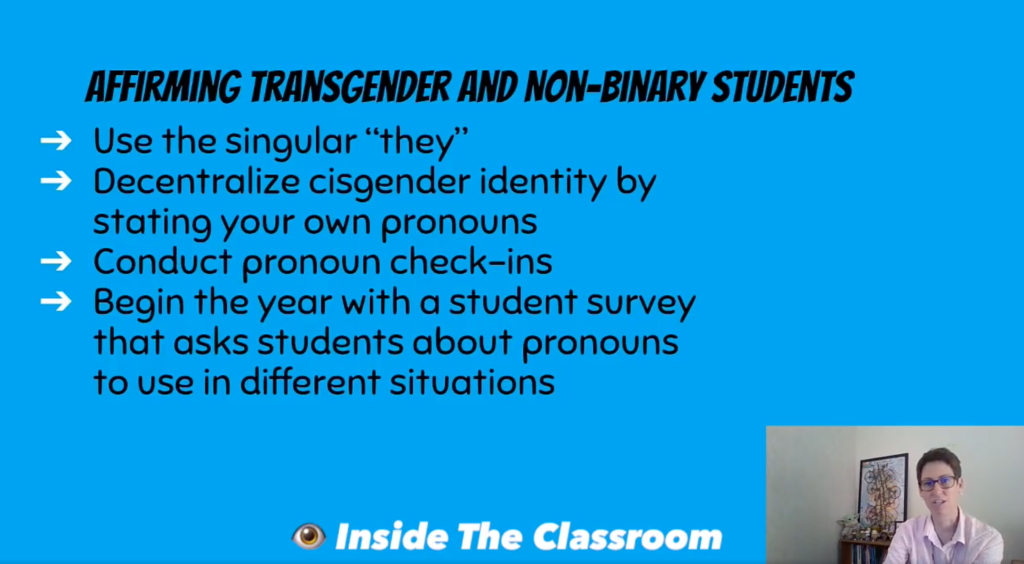
Okemos Schools’ DEI director warns that teachers who don’t use students’ preferred pronouns’—even behind parents’ backs—”could potentially fall under our harassment policy”
Incidents
The Okemos Public Schools’ director of Diversity, Equity, and Inclusion warned in July that teachers who fail to use a student’s preferred pronouns, even without parental knowledge, may face harassment claims. The district advises school employees to use a student’s preferred pronouns regardless of parental consent.
“In consultation with our legal team, we have found that students have the right to be called by their chosen names, even if parents disagree,” DEI director Laura Slee said in a video posted on the district’s YouTube channel in May. “If you’re trying to do right by the student and the parents are mad about it, the district will support you… If we continue to not call them by the right name, and not gender them correctly using the pronouns they are requesting, that could potentially fall under our harassment policy. And we don’t want to go there.”
The video, which also explains ways for teachers to understand gender identity, gender expression, and sexual orientation, was shown to staff in a May 2 meeting.
The district has a procedure for changing a student’s name in PowerSchool Learning to match the name that the student wants to be called, Slee said, adding that, “We’re working on getting that as an official board policy.” According to June 13 Okemos Board of Education meeting minutes, the “students’ preferred name process and procedures” policy is still developing.

Michigan Capitol Confidential first reported the district’s threat. The original story verified that “Michigan Compiled Law 380.10 states, ‘It is the natural, fundamental right of parents and legal guardians to determine and direct the care, teaching, and education of their children. The public schools of this state serve the needs of the pupils by cooperating with the pupil’s parents and legal guardians to develop the pupil’s intellectual capabilities and vocational skills in a safe and positive environment.'”
While presenting a slide on ways to “affirm transgender and non-binary students,” Slee doubled-down on the district’s breach of parental rights:
“If you’re in the classroom as a teacher, a good suggestion is to start the year off with a survey to ask students what they want to be called, if it’s something other than what is on the class roster, and which situations do they want to be called by that name,” she said. “Sometimes they may ask you to use a different name with their parents and as educators in our system, we put students rights at the forefront, so if that’s what the student wants, then that’s what we will do.”

In a statement given to Michigan Capitol Confidential, Slee said that the gender-identity training video addressed a myriad of questions from administration and staff. Staffers with moral qualms regarding pronoun usage must answer to the district on a case-by-case basis, she added.
“Working with caregivers is always our starting point when it comes to helping students. Our primary focus is the safety of students—psychologically and physically—and our charge is to provide learning environments that center on students’ needs. We approach the instances in which caregivers do not want their child to be called by a different name on a case-by-case basis.”
Stay Informed
